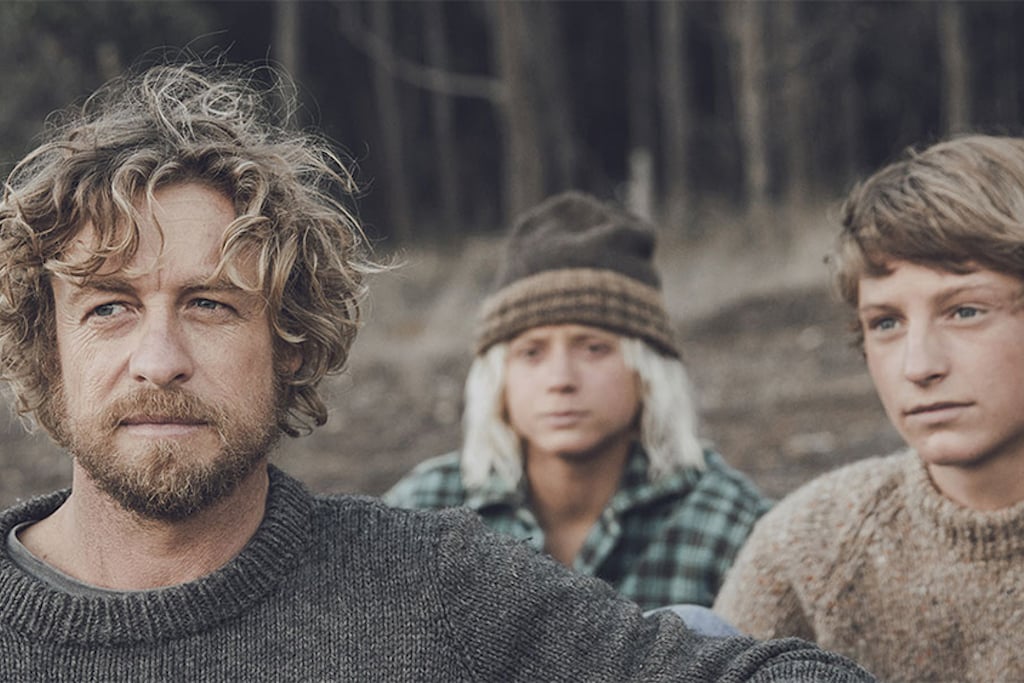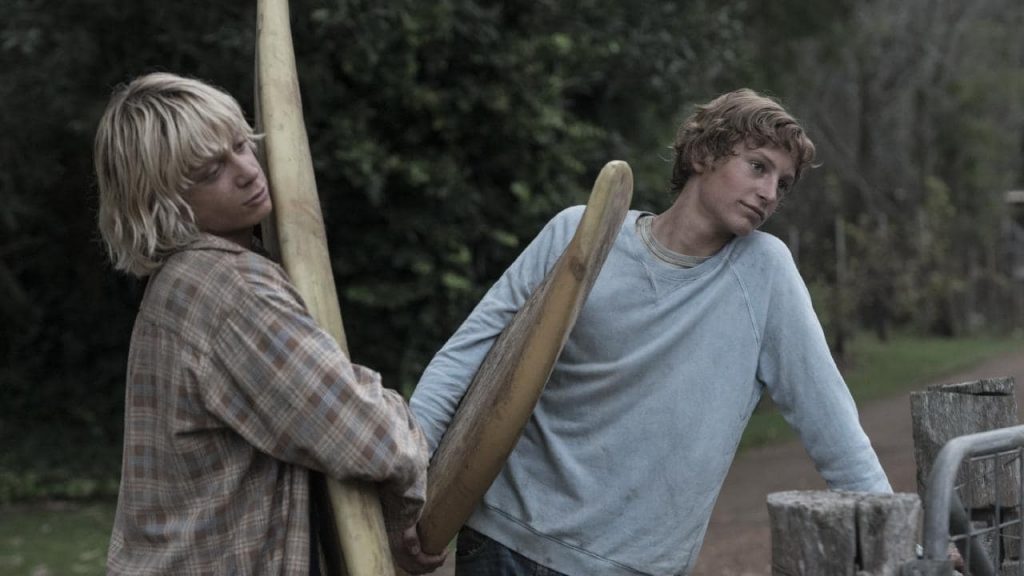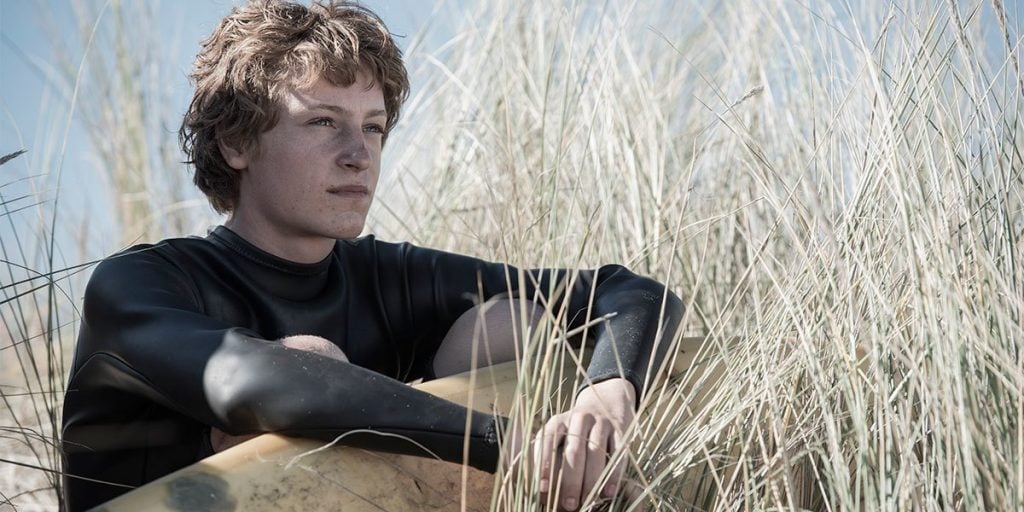‘Breath’ Is A Movie Made For Middle-Aged White Guys And Literally No One Else
But hey, might be worth a watch if you love surfing?

The new Australian film Breath is a peculiar thing. It’s been so heavily hyped that you could be forgiven for thinking it’s something special — after all, Australia’s Own™ Simon Baker returned home to make it his feature directorial debut, and it’s adapted from a novel by beloved author Tim Winton.
Sadly, there’s little evidence in the finished product beyond Australian cultural nepotism to suggest why this project has been given such attention. A coming-of-age drama set in the 1970s that holds zero relevance to contemporary society, Breath is a movie made for nobody other than middle-aged men who want to fondly recall their youth.
Worse still, it ignores the experiences of everyone who isn’t presumably just like Baker himself — a surfing-mad white dude.
Tim Winton’s Australia
Tim Winton has made a career out of writing about Australians and their relationship to the coast and the water. It’s certainly part of what made him an official “Living Treasure” in 2007, and what has made his books stand out as ripe for adaptation — 2011 saw Cloudstreet turned into a Foxtel miniseries and in 2013 we got The Turning, a three-hour anthology based on Winton’s short stories.
Breath could have fit right in with The Turning, as it’s basically a short film expanded to a sedate 120 minutes. Pikelet (Samson Coulter) and Loonie (Ben Spence) are two lackadaisical teens who spend their time doing cycling stunts and chopping wood for extra cash. One summer they discover surfing and the prodigal former champion Sando (Baker) who lives in a designer bush-shack with another former professional athlete, Eva (Elizabeth Debicki).
As Pikelet and Loonie become more attached to surfing, their other lives begin to drift away — but what lessons will they learn along the way? Will they grow from boys to men? Will there be a sex montage set to Fleetwood Mac? The answer to all three is: did I mention this was Tim Winton?
I haven’t read the book that Breath is adapted from, but Baker’s film isn’t likely to convince anyone if they’re not already a fan. It does, however, occasionally succeed at some of the things that Winton does best. Early scenes in Breath do a nice job of showing how kids entertained themselves before screens. And for all the lack of care I have for surfing, Baker captures the gracefulness that Winton’s prose suggests in the surfing scenes.

Like A Fish Out Of Water
It’s when they’re out of the water that the film struggles.
Despite Pikelet and Loonie’s age, Breath seemingly has little time for the concerns of actual teenagers. Which is a shame because Winton’s own Lockie Leonard series, for instance — and its subsequent television adaptation — was so good at capturing very teenage concerns, from puberty to feelings of outsiderdom. It’s as if Breath takes narrative inspiration from the boys’ newfound obsession with surfing and consequently loses interest in anything else. That makes sense in theory, but not in a work of narrative drama.
A budding high school romance between Pikelet and a fellow student (Miranda Frangou) unfolds via silent cut-away edits with a remarkable level of passivity (and don’t expect anything from her point of view). Despite an ogling presence to the way Pikelet watches Sando among the surf, and the closeness of the two teenage boys, there’s nothing here to suggest there might be anything potentially homoerotic about it.
Pikelet’s relationship with his dad (Richard Roxburgh) hints at shifting generational dynamics, yet is never explored. And the sexual revolution that is thrust upon Pikelet for a brief time comes and goes with little of the thrill that one’s sexual awakening should bring.
You could, perhaps, make the argument that the film is critiquing Australian life in the ’70s. After all, we’re privy to the profound ordinariness of Sando’s life despite a history of athletic glory, and the sinking inevitability for Pikelet’s parents that their son will move forward into an Australian future built around cities and concrete. You could make that leap if you tried, but the movie never delves beyond surface level.

Painful Poetry
There is a moment in the third act where Eva calls Sando’s old wise man shtick “guru shit”, and it would be amusingly self-observant if the screenplay wasn’t fully committed to embracing two hours’ worth of that very new-age nonsense.
There’s only so much talk about the majesty of the water and the innocence of cresting waves that one can stand. Upon spotting a surfer out in the swells, Pikelet notes that “never had I ever seen something so beautiful, so pointless and elegant, as if dancing on water was the best thing a man could do.”
Hand off it, Pikelet.

Of course, this ‘poetic’ dialogue is part of the package with a Tim Winton project. An adaption of Winton’s Dirt Music, for instance, never got off the ground because proposed director Philip Noyce “could never get a script that [he] thought captured the poetry of the novel”.
Breath has gone whole hog with it and while Baker and his actors recite the words with plenty of sincerity, if you’re not on its very hippy-adjacent wavelength there’s a very strong chance you’ll find it silly and corny. Too often these characters sound less like real people and more like water-logged aliens with a thesaurus.
As strange as it is to say, Swinging Safari did a better job of interrogating Australia’s obsession with the idea of beach culture. Erections, exploding whales, and graphic sunburn peeling included.
—
Glenn Dunks is a freelance writer from Melbourne. He also works as an editor and a film festival programmer while tweeting too much at @glenndunks.